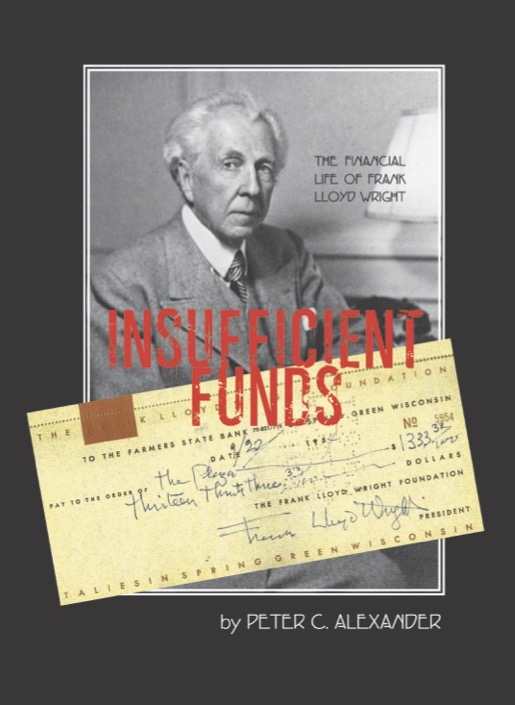Insufficient Funds
The Financial Life of Frank Lloyd Wright
Insufficient Funds is a unique biographical account of American architectural legend Frank Lloyd Wright.
Bankruptcy lawyer Peter C. Alexander’s engaging biography of Frank Lloyd Wright, Insufficient Funds, focuses on the architectural giant’s financial life.
Frank Lloyd Wright is an icon, but Alexander notes that his financial life was nowhere near as sound as his professional work. This book details Wright’s financial philosophies and practices to gauge the impact they had on his life, work, and family. Though its explanations brim with a sense of Wright’s optimism and zest for life, Alexander’s book also has elements of a cautionary tale when it comes to desiring financial independence—particularly without Wright’s bountiful talent and charisma.
Here, Wright’s financial beliefs are said to have turned common financial wisdom on its head: he focused on luxuries over necessities, and he let his spending drive his income. He had an adversarial relationship to banks—the only institutions, it seems, that tried to keep his spending in check—of whom he quipped “[our] mistrust grew cordially mutual in the course of time.” While the book notes that he skipped to the brink of bankruptcy, it does not clarify whether the filing ever went through.
The chapters are organized according to facets of Wright’s identity, like his spendthriftiness and salesmanship; in consideration of legal matters; and with the people who helped him behind the scenes of his star-studded life in mind. Alexander shows how money struggles impacted Wright’s relationships, particularly with his wives, one of whom is said to have filed his bankruptcy. But he also often seemed to enjoy a worry-free life.
Following Wright from his humble childhood through to his mounting success, and even covering his financial and professional legacy, the book circles repeating themes while also maintaining forward momentum. Despite its focus on the financial side of Wright’s life, it also diverges from that topic to cover his key homes and buildings—and their places in his financial story. Even in calling Wright’s financial decisions into question, it regards him with high esteem—a “remarkable, talented, and complicated man.” While he often scrambled for cash, he was also self-aware and open about his monetary problems in his letters.
Drawing on other biographies and accounts, as well as on Wright’s own words in letters and interviews, this grounded book makes its complicated financial concepts clear and accessible. And it closes with brief, instructive lessons for others from Wright’s life, regarding one’s sense of self as well as in relation to one’s financial behavior. Images of Wright’s gorgeous buildings and of architectural details from his work are paired with those of his family members and other central people in his life, complementing the text’s appreciation for his perspective and his work.
Insufficient Funds is a unique biographical account of American architectural legend Frank Lloyd Wright.
Reviewed by
Melissa Wuske
Disclosure: This article is not an endorsement, but a review. The publisher of this book provided free copies of the book and paid a small fee to have their book reviewed by a professional reviewer. Foreword Reviews and Clarion Reviews make no guarantee that the publisher will receive a positive review. Foreword Magazine, Inc. is disclosing this in accordance with the Federal Trade Commission’s 16 CFR, Part 255.

